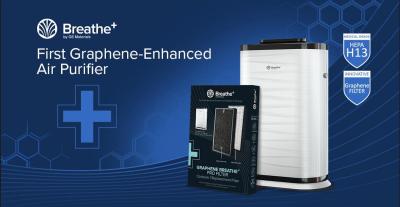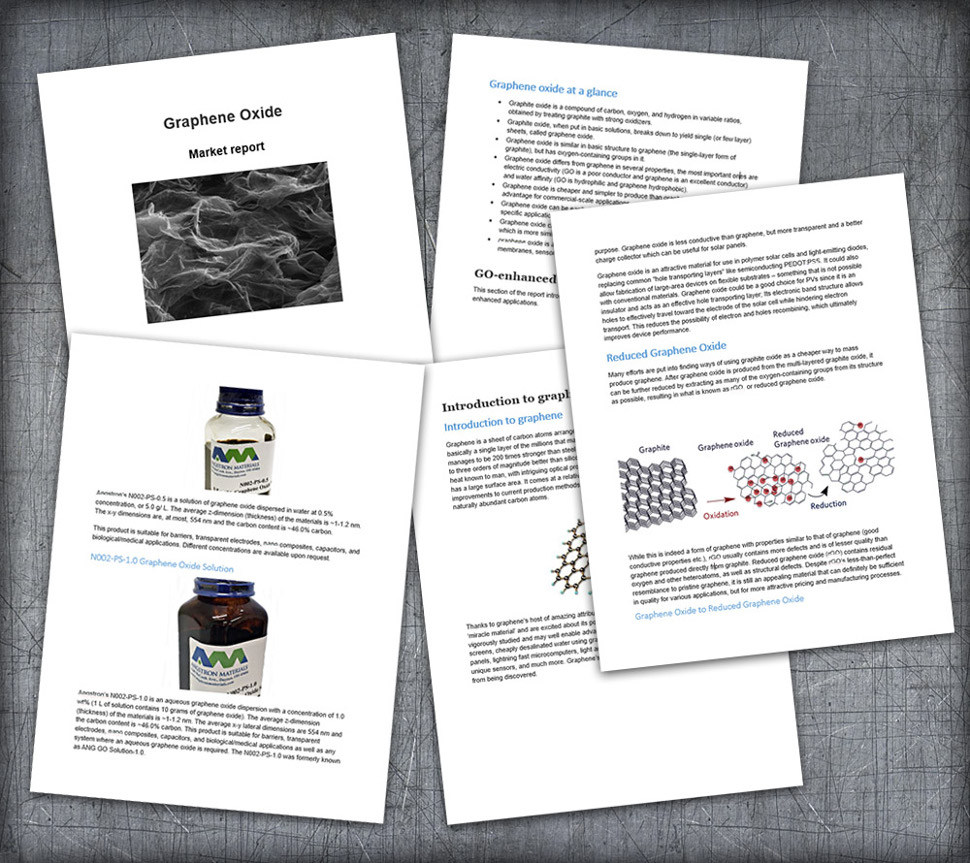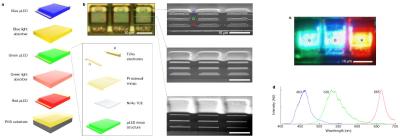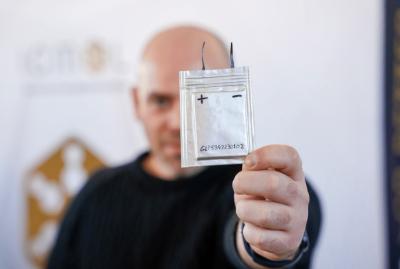The Graphene-Info weekly newsletter
Published: Tue, 02/07/23
The Graphene-Info newsletter (February 7, 2023)
Cannot read this? View it online here
Sparc Technologies reports progress with new manufacturing facility for graphene-based additives
Sparc Technologies has progressed construction of a modular and scalable manufacturing facility to produce graphene-based additives with commissioning expected in Q1 CY23.
The facility will enable the production of commercial quantities of graphene-based additives for the growing global coatings and composites markets, according to the Company's investor update.
G6 Materials announces its latest financial results
G6 Materials Corporation announced its latest quarterly results for the quarter that ended on November 2022. Revenues increased to $490,527 (up from $320,204 last year) and net loss was $911,886, up from a net loss of $610,265 last year.

Gross profit, however, increased from $39,383 to $201,471 primarily due to a change in product sales mix. In July 2022, G6M announced the launch and immediate availability of the Breathe+ Pro Advanced Antimicrobial Graphene Air Filtration System.
A new version of our Graphene Oxide Market report released
Today we published a new edition of our Graphene Oxide Market Report, with all the latest information, including both new research activities and updates from companies. Our market report is a comprehensive guide to graphene oxide (and r-GO) materials and their promising applications in energy storage, composite materials, bio-medical, water treatment and more.
Reading this report, you'll learn all about:
- The difference between graphene oxide and graphene
- Graphene oxide properties
- Possible applications for graphene oxide
- Reduction of graphene oxide to r-GO
The report package also provides:
- A list of prominent GO research activities
- A list of all graphene oxide developers and their products
- Datasheets for over 20 different GO materials
- Free updates for a year
This Graphene Oxide market report provides a great introduction to graphene oxide materials and applications, and covers everything you need to know about GO materials on the market. This is a great guide for anyone interested in applying graphene oxide in their products.
Graphene used to grow the world's smallest microLEDs and highest-density microLED arrays
Researchers from MIT, in collaboration with researchers from other Universities in the US and Korea, have used graphene (and hBN) to develop full-color vertically-stacked microLEDs - that achieve the highest array density (5100 PPI) and the smallest size (4 µm) reported to date.
The researchers developed a 2D-materials based layer transfer (2DLT) technique - that involves growing the LEDs on 2D material-coated substrates, removing the LEDs, and then sttacking them. For the red LEDs, the researchers used graphene, coated on a GaAs wafer, while for the green and blue LEDs, they used hBN on sapphire wafers. The graphene red LEDs were transferred using remote epitaxy, while the hBN blue and green ones were removed using Van der Waals epitaxy.
Graphenano and the University of Valencia report major milestone with first cell made without metals
Graphenano and the Institute of Molecular Science (ICMol) of the University of Valencia have developed a battery cell without current collectors or metal terminals, which uses graphene and carbon nanomaterials instead. The system enables the creation of safer, lighter and more efficient batteries for electric cars, aviation, stationary storage and more.
The scientists have succeeded in removing the copper, aluminium or steel sheets, the materials generally used in conventional batteries to evacuate the electric current generated. Simultaneously, the metallic tabs (current terminals), usually made of nickel or other metals, which are responsible for transferring the energy from the inside to the outside of the battery, have been eliminated. The replacement of these metals by graphene and other carbon nanomaterials significantly reduces the weight and volume of the devices. Furthermore, the team reported that tests have ascertained that this replacement increases the energy density by 30-60% and eliminates the risk of explosion or fire accidents on contact with air.
Norse launches strong, light Kayaks based on Haydale's graphene materials
Haydale has announced that its bespoke mechanical graphene masterbatch has been used to create stronger and lighter composite sea kayaks for Norwegian paddle sport brand Norse Kayaks ("Norse").
Using the new graphene-enhanced material has reportedly made the Norse kayak 30% lighter, going from 23kg to 16kg, making the composite kayak easier to load and transport. The use of graphene in the vacuum infusion composite layup process has also increased both impact strength and stiffness, improving the resistance to breakage in critical areas of the kayak. Vibration dampening has also improved the user experience.
Metalgrass LTD
9 Har Tsin St.
Kfar Sava Hasharon 4430809
ISRAEL
Unsubscribe | Change Subscriber Options






